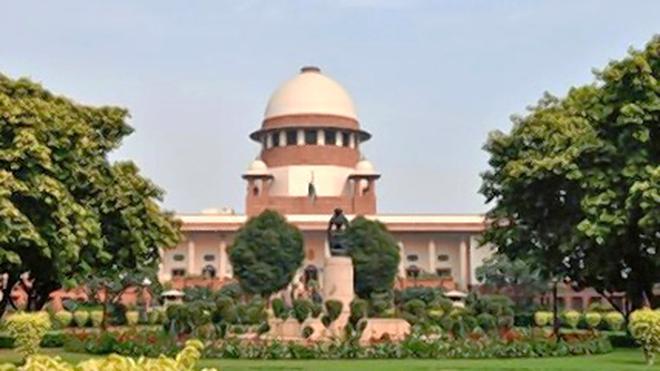New Delhi: The Supreme Court on Friday refused to advance the date of hearing on petitions seeking restoration of Jammu & Kashmir’s statehood, dismissing the request for an urgent listing of the matter. The case, which concerns the constitutional status of the Union Territory following the abrogation of Article 370 in August 2019, remains one of the most closely watched legal battles in recent years.
The bench, headed by Chief Justice of India (CJI) DY Chandrachud, stated that the matter will be heard as per the previously scheduled timeline and not before. Senior advocates representing the petitioners had sought an early hearing, citing the delay in the restoration of democratic governance and the prolonged period since the bifurcation of the state into two Union Territories — Jammu & Kashmir and Ladakh.
The Supreme Court’s decision means that the petitions challenging the central government’s move to revoke the special status of J&K and downgrade it to a Union Territory will continue to wait. The petitioners had argued that the delay was impacting governance and constitutional guarantees for the people of Jammu & Kashmir.
What the Petitioners Said
Lawyers appearing for the petitioners urged the court to list the matter at the earliest, highlighting the sensitive nature of the issue. “This is a question of federalism, democratic governance, and constitutional propriety,” one of the counsels stated during the brief hearing.
However, the court declined to modify its schedule, stating that the matter will come up for hearing on the date already fixed. The CJI emphasized that the court’s roster is determined in a structured manner and exceptions cannot be made unless there is a matter of extreme urgency.
Background
The central government had on August 5, 2019, abrogated Article 370, which granted special status to Jammu & Kashmir, and subsequently bifurcated the state into two Union Territories — Jammu & Kashmir and Ladakh. The move sparked widespread political and legal debate, with several petitions filed in the Supreme Court challenging its constitutional validity.
While the government has repeatedly assured that statehood will be restored to J&K at an “appropriate time,” the exact timeline remains unclear. Home Minister Amit Shah has reiterated in Parliament that elections will be held and statehood will be granted once the security situation improves.
Political Reactions
The court’s refusal to advance the hearing date has drawn mixed reactions. Leaders from Jammu & Kashmir expressed disappointment, saying the delay continues to deny the people their democratic rights. National Conference leader Omar Abdullah stated, “The wait for justice seems never-ending. People have been waiting for the restoration of their dignity for over five years now.”
On the other hand, BJP leaders welcomed the court’s decision to stick to the schedule, arguing that the matter requires a detailed and comprehensive hearing rather than rushed proceedings.
What Happens Next?
The petitions will now be heard on the previously decided date, which is expected to see arguments on whether Parliament had the constitutional authority to abrogate Article 370 and whether the downgrade of a state into a Union Territory was legally permissible. The outcome of this case could have far-reaching implications for federalism and the constitutional framework of India.
For now, Jammu & Kashmir remains a Union Territory, with its statehood hanging in the balance and the people waiting for clarity from both the judiciary and the government.

